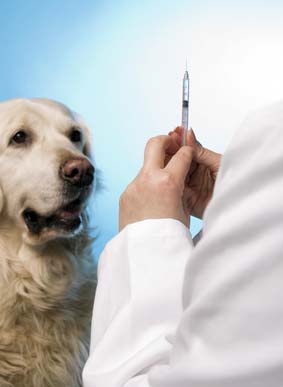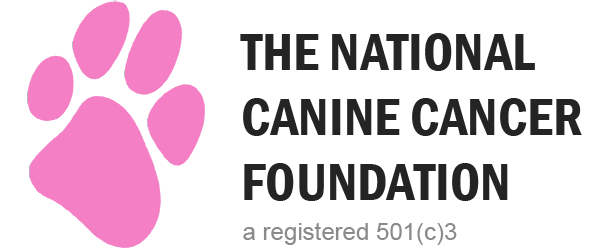 Calviri’s Vaccine Against Canine Cancer Study (VACCS), has finished the 5-year, 804 dog clinical trial. The VACCS aimed at investigating a novel preventative cancer vaccine in dogs. This trial leverages what is known about shared neoantigens. Neoantigens are irregular peptides from mutations in tumor DNA. Previous attempts at developing cancer vaccines have been unsuccessful due the fact that the mutations are unique to each person or dog.
Calviri’s Vaccine Against Canine Cancer Study (VACCS), has finished the 5-year, 804 dog clinical trial. The VACCS aimed at investigating a novel preventative cancer vaccine in dogs. This trial leverages what is known about shared neoantigens. Neoantigens are irregular peptides from mutations in tumor DNA. Previous attempts at developing cancer vaccines have been unsuccessful due the fact that the mutations are unique to each person or dog.
How does the canine cancer vaccine work?
Stephen Albert Johnston, CEO of Calviri and former Professor at Arizona State University, discovered unique protein fragments that arise from errors during tumor RNA processing and that these fragments are present in many cancers. The VACCS vaccine consisted of 31 of the shared neoantigens, thus allowing a broad-spectrum approach instead of needing to personalize the vaccine.
Three well known veterinary colleges helped to conduct the VACCS trial, Colorado State University, University of Wisconsin-Madison and University of California, Davis. This collaborative research effort along with a study that was designed as a randomized, placebo-controlled study to evaluate the efficacy and safety of a cancer preventive vaccine in dogs ensured the scientific merit of the study.
“The motivation of many of the dog owners was that this trial would lead to developing a vaccine to prevent cancer in humans. We all hope they are right” stated Dr. Jenna Burton, co-principal investigator at CSU.
Each of the participants were meticulously screened to exclude any pre-existing tumors or other serious health issues. Dogs were randomly assigned to either receive the investigational vaccine or a placebo version. Then they were examined every 6 months for tumors and received a vaccine boost each year.
Was the trial a success?
According to Dr. Douglas Thamm, principal clinical investigator (CSU), “The owner participation was amazing. This was one of the largest clinical trials for dogs and it required significant commitment on the part of the owners. The owners made the trial a success.”
![]()
![]() The analysis of the trial’s data is still ongoing. It will be published in a peer-reviewed journal as the initial safety and efficacy profile is highly encouraging. Based on this, Johnston, stated that “The safety and efficacy results are encouraging enough that we have begun production of an improved version of the vaccine for approval and conditional sales.” If things go well it is possible this vaccine could be available in late 2025.
The analysis of the trial’s data is still ongoing. It will be published in a peer-reviewed journal as the initial safety and efficacy profile is highly encouraging. Based on this, Johnston, stated that “The safety and efficacy results are encouraging enough that we have begun production of an improved version of the vaccine for approval and conditional sales.” If things go well it is possible this vaccine could be available in late 2025.
8 Superfoods For Your Dogs Diet That Can Help Fight Cancer
10 Early Warning Signs of Cancer in Dogs
Where Are Lymph Nodes In Dogs And How Do You Check Them?



That is such awesome news!!! A heartfelt thanks to everyone involved – all of the beautiful pups and their owners, as well as the scientific community, for making this possible! I have lost 5 precious dogs to cancer throughout my life, and it’s heartbreaking. I hope and pray that this vaccine will make a huge difference for our canine companions, and protect them from this horrible disease in the future. Looking forward to hearing more good news!
It would be so wonderful if this could save our precious dogs from this horrible disease. I’ve lost four dogs to this. The most recent to an oral melanoma -to look at her she was healthy and vibrant but this 2 cm mass took her in mere months.
What wonderful news! Just another reminder that “Together, we ARE the cure!”
This is amazing!! I’m so happy for all the dogs that will be saved from this vaccine!! I only wish it came out sooner to spare my dog from everything we’re going thru now
Such wonderful news!!
Where can I bring my girl for treatment in the Sterling, Va Area?
Hi David,
If you look on https://www.vetspecialists.com/find-a-specialist you can find a board certified oncologist.